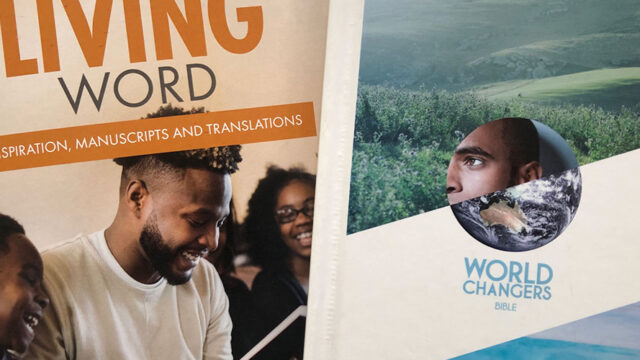Have you ever witnessed kindness that gave you goosebumps?

The pandemic forced us inside and in front of more screens, streaming videos, and boxed conferences than ever before. This resulted in a concoction of social isolation, inwardness, boredom, and self-preoccupation. We have still yet to see the full ramifications of the pandemic on the world’s mental and spiritual health.
Psychology professor Dacher Keltner proposes a remedy in Awe: The New Science of Everyday Wonder and How It Can Transform Your Life.* As the title states, the book highlights the unique emotion of awe and wonder. Physiologically, awe occurs when the body experiences tingling, chills, or goosebumps; when the eyes tear up; or is what viewers seek through ASMR (autonomous sensory meridian response) videos. Psychologically, awe is being amazed at something vast and seeing self as tiny in contrast to that vastness.
Keltner gives evidence of awe having positive health effects, namely on the brain, immune and nervous systems, heart, stress resilience, cognitive performance, creativity, and digestion. He offers eight areas of where awe and wonder can be experienced. Termed collective effervescence, movement in unison with larger groups causes awe, such as in rituals, sport celebrations, dances, protests, and concerts. Nature allows us to experience mystery and wonder outdoors. Music, along with visual design—through sound and sight, respectively—are sources of awe. He then highlights other sources that transcend the world, cultures, and human understanding, things like spiritual experiences, moments witnessing births and funerals, and the epiphany of big ideas.
One special area of awe is found in moral beauty, particularly goodness and kindness. When we hear and experience accounts of courage, inspiration, hope, optimism, overcoming, and purity, it awakens our sense of amazement and prevents small-mindedness, as experienced in the pandemic. Kindness sees the fragility of humanity as well as the immeasurable beauty of morality. Kindness considers the other, seeks friendship and understanding in the other, and desires to be generous with the other.
Interestingly, awe is not found in material things, money, technology, consumption, or status. If one were to combine the eight sources of awe (collective movement, nature, music, visual design, spirituality, mortality, big ideas, and morality), we would arrive at worship. “Let all the earth fear the Lord; let all the inhabitants of the world stand in awe of Him” (Ps. 33:8). Humanity was created by God for worship, and for experiencing continual wonder and awe, specifically of Him. And, surely, the physical and psychological benefits of this worship are so needed now.
As we transition out of this pandemic winter to unmasked spring, may we seek more moments of daily awe, worship before God and His limitlessness, and manifest a fresher, Christ-enabled kindness to the others.
* Dacher Keltner, Awe: The New Science of Everyday Wonder and How It Can Transform Your Life
(New York: Penguin Press, 2023)








